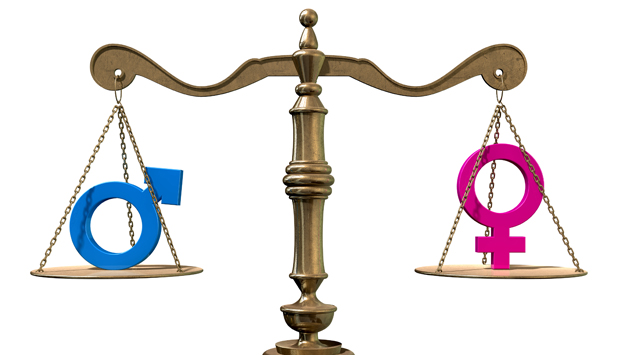
Gender bias is a pervasive issue that continues to impact the Indian legal system, leading to deeply unfair consequences for individuals across the gender spectrum. At SMS Law College, we help our BA LLB students understand this bias and work strategically to counter it as lawyers. We hope all our law students uphold the principles of justice and equality.
Let us delve more into gender advocacy and combating gender bias in court here:
Gender Bias Women Face in the Indian Legal System

Despite progressive legislation, women in India still grapple with gender bias within the legal system. Here are a few examples:
- Domestic Violence and Sexual Assault: The deeply entrenched patriarchal structures in India frequently result in a lack of sensitivity towards female victims in cases of sexual harassment, assault, and domestic violence. Women’s testimonies are often dismissed, doubted, and their characters scrutinised.
The 2012 Delhi gang rape case (Nirbhaya) sparked nationwide outrage and led to some legal reform, but implementation and systemic changes remain insufficient.
- Inheritance and Property Rights: Many customary and personal laws in India have historically discriminated against women concerning inheritance and property rights. Though the Hindu Succession (Amendment) Act of 2005 addressed some of these inequalities, loopholes persist. Women often lack awareness of their rights or face social pressure to forfeit them.
- Workplace Harassment: Despite the Sexual Harassment of Women at Workplace (Prevention, Prohibition and Redressal) Act of 2013, women routinely face harassment in Indian workplaces. They often hesitate to bring complaints due to societal stigma, power imbalances, and the fear of backlash.
Gender Bias Men Face in Indian Laws

Though often overlooked, men in India also encounter gender bias within the legal framework, particularly in these areas:
- Marital Rape: Indian law still does not criminalise marital rape. This denies men in abusive marriages the same legal protection afforded to women, perpetuating a belief that forced sexual acts within marriage are permissible.
- Domestic Violence: While the Protection of Women from Domestic Violence Act, 2005 provides much-needed legal recourse for women, there’s no equivalent encompassing men. This creates a skewed perception that men cannot be victims of domestic abuse.
- Child Custody: Custody laws often lean towards mothers as the presumed primary caregivers. This can disadvantage fathers seeking equal rights and involvement in their children’s lives.
Gender Bias the LGBTQIA+ Community Faces in India

The LGBTQIA+ community experiences particularly harsh marginalisation within India’s legal system:
- Section 377: Until its partial decriminalisation in 2018, Section 377 of the Indian Penal Code criminalised same-sex relations, leading to the persecution of LGBTQIA+ individuals. Even after its decriminalisation, societal stigma and discrimination persist, severely hindering access to justice.
- Conversion Therapy: Despite its harmful and discredited nature, conversion therapy aimed at altering sexual orientation or gender identity remains legal in India. This perpetuates harmful stereotypes and infringes on an individual’s fundamental rights.
- Lack of Legal Recognition: In terms of marriage rights, adoption rights, inheritance rights, and protection from discrimination, the LGBTQIA+ community experiences significant legal disadvantages.
What You Can Do as an SMS Law College Student for Gender Advocacy?
SMS Law College, with its dedication to fostering a well-rounded legal education, provides a strong foundation for students to become active proponents of gender equality. Here are some specific ways you can leverage your position as an SMS Law College student to make a positive impact:
- Join the Gender Advocacy Club: We have clubs or committees dedicated to gender issues. Actively participate in these clubs to connect with like-minded peers, organise workshops and discussions on gender bias, and invite guest speakers to share their expertise.
- Research and Write: Delve into landmark cases related to gender equality, such as the aforementioned Navtej Johar case or Vishaka v. State of Rajasthan, which established guidelines for preventing sexual harassment in the workplace. Write research papers or blog posts analysing these cases and their implications for legal practice.
- Volunteer at Legal Aid Clinics: SMS Law College has legal aid clinics that provide free legal assistance to marginalised communities. Volunteer your time at these clinics to gain practical experience while specifically assisting clients facing gender-based discrimination.
- Organise Street Law Programs: Educating the public about their legal rights is crucial for combating gender bias. Participate in or even organise street law programs where you can educate local communities about gender-related laws such as those concerning domestic violence, sexual harassment, or inheritance rights.
- Moot Court Competitions: Participate in moot court competitions that focus on gender-related legal issues. Researching and arguing these cases will not only hone your legal skills but also deepen your understanding of the complexities of gender bias within the legal system.
- Intern with Gender Rights NGOs: Seek internship opportunities with NGOs or gender rights organisations. This will provide valuable firsthand experience on the challenges faced by individuals and communities battling gender discrimination while allowing you to contribute to their advocacy efforts.
By taking these steps, SMS Law College students can become powerful advocates for gender equality. Remember, your legal education equips you not just with legal knowledge, but with the ability to critically analyse, advocate, and ultimately work towards a more just legal system for all.
What You Can Do as a Lawyer for Combating Gender Bias in Court?
As a budding lawyer, you’re in a unique position to advocate for change. Here’s how you can counter gender bias and make a difference:
1. Educate Yourself and Raise Awareness: Deepen your understanding of gender bias. Attend training sessions and stay updated on laws and landmark cases like Joseph Shine v Union of India, Lilu Petitioner v Union Territory of India & Anr, Tripta Singh v State of Uttar Pradesh, Shayara Bano v Union of India, and more. Consider joining networks focussed on gender advocacy, such as those based at SMS Law College.
2. Challenge Bias in the Courtroom: Be vigilant of gender stereotypes exhibited by judges, fellow lawyers or even by clients. Question discriminatory assumptions and advocate for using gender-neutral language.
3. Support Clients Holistically: Understand that victims of gender-based discrimination are often traumatised and face complex social pressures. Provide empathetic support while guiding them through legal processes. Collaborate with NGOs that offer counselling and support services.
4. Advocate for Policy Changes: Collaborate with legal organisations, social activists, and NGOs to push for reforms that remove discriminatory provisions from laws. Campaign to ensure that legislation upholds principles of gender equality and secures the rights of all individuals, regardless of gender identity or sexual orientation. Students of SMS Law College can play a significant role in supporting such advocacy initiatives.
5. Promote Gender Inclusivity in the Legal Profession: The lack of female and LGBTQIA+ representation among judges, lawyers, and policymakers exacerbates the problem of gender bias. When you become senior advocates, mentor young women and members of the LGBTQIA+ community who are pursuing legal careers. Help create welcoming and inclusive legal workplaces.
Conclusion
Though the challenges of gender bias within the Indian legal system are substantial, we cannot shy away from addressing them. As aspiring lawyers, you can make a real difference. We encourage our law students at SMS Law College to actively work towards combating gender bias in court and through gender advocacy, take meaningful steps toward ensuring equality and true justice under the law.
Remember, every legal case, every interaction, every piece of legislation is an opportunity to challenge biases and create a legal system that rises above prejudice. Let us all commit to dismantling gender bias, transforming not only laws but mindsets in the interest of a more just India.




